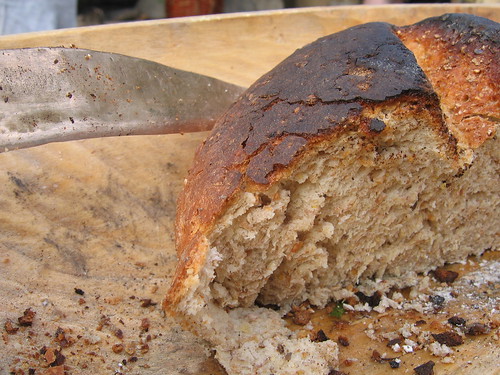The Parson in his house oserves fasting dayes; and particularly, as Sunday is his day of joy, so Friday his day of Humiliation, which he celebrates only with abstinence of diet, but also of company, recreation, and all outward contentments; and besides, with confession of sins, and all acts of Mortification. Now fasting dayes containe a treble obligation; first, of eating lesse that day, then on other dayes; secondly, of eating no pleasing, or over-nourishing things, as the Israelites did eate sowre herbs: Thirdly, of eating no flesh, which is but the determination of the second rule by Authority to this particular. The two former obligations are much more essentiall to a true fast, then the third and last; and fasting dayes were fully performed by keeping of the two former, had not Authority interposed: so that to eat little, and that unpleasant, is the naturall rule of fasting, although it be flesh. For since fasting in Scripture language is an afflicting of our souls, if a peece of dry flesh at my table be more unpleasant to me, then some fish there, certainly to eat the flesh, and not the fish, is to keep the fasting day naturally. And it is observable, that the prohibiting of flesh came from hot Countreys, where both flesh alone, and much more with wine, is apt to nourish more then in cold regions, and where flesh may be much better spared, and with more safety then elsewhere, where both the people and the drink being cold and flegmatick, the eating of flesh is an antidote to both. For it is certaine, that a weak stomack being prepossessed with flesh, shall much better brooke and bear a draught of beer, then if it had taken before either fish, or rootes, or such things; which will discover it selfe by spitting, and rheume, or flegme. To conclude, the Parson, if he be in full health, keeps the three obligations, eating fish, or roots, and that for quantity little, for quality unpleasant. If his body be weak and obstructed, as most Students are, he cannot keep the last obligation, nor suffer others in his house that are so, to keep it; but only the two former, which also in diseases of exinanition (as consumptions) must be broken: For meat was made for man, not man for meat. To all this may be added, not for emboldening the unruly, but for the comfort of the weak, that not onely sicknesse breaks these obligations of fasting, but sicklinesse also. For it is as unnatural to do any thing, that leads me to a sicknesse, to which I am inclined, as not to get out of that sicknesse, when I am in it, by any diet. One thing is evident, that an English body, and a Students body, are two great obstructed vessels, and there is nothing that is food, and not phisick, which doth lesse obstruct, then flesh moderately taken; as being immoderately taken, it is exceeding obstructive. And obstructions are the cause of most diseases.
First I have to say I love the quote “One thing is evident, that an English body, and a Students body, are two great obstructed vessels”.
I don’t understand a lot of what Herbert is saying about “spitting, and rheume, or flegme” but what catches my attention is how much attention he pays to appropriate food and health, he does so elsewhere as well. Talk about holistic! While we have different medical understandings of things Herbert is very concerned with physical wellbeing as well as spiritual health. Here he is talking about this in the context of fasting, but he shows a strong knowledge of medicine at the time and shows us an example of paying attention to our health.
As for fasting, the main point I take is that it should fit the context. It is not simply following set rules of how much and what to eat or not eat but applying a principal of self-discipline with food, entertainment and company to your own situation and environment. I wonder if the deprivations of Friday helped Herbert endure the intensity of his proposed Sabbath.
Image is Bronzeage Bread by Hans S

I guess I’m interested in his Saturday. Observing/celebrating the crucifixion on Friday in humiliation of self…Observing/celebrating the resurrection on Sunday in great joy…What about Saturday? While I’m sure Saturday was less of a big deal in his day than it has become in ours, surely there was something noteworthy on Saturday, wasn’t there???? I dont care for the tone of his friday and cant keep the pace with his sunday. Didn’t he ever go fishing? Walking through the countryside? College Football?
This is just fascinating to me. It’s a completely different perspective on ministry that has been lost. At least I’ve never been exposed to much of it. Thanks for taking the time to share this “old stuff” with the rest of us.